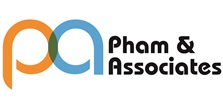
PCT, Madrid and development top WIPO agenda
The most striking initiative comes not from WIPO itself but from two member states: Japan and the US will submit a joint proposal at the Assemblies asking for a 15% cut in the basic fee for PCT applications.
Under the proposal the basic PCT application fee would be reduced from SFr1,400 ($1,160) to SFr1,190 from January 2008. This would cut the cost of filing PCT applications, which can be used to file patents in 137 countries.
Although the proposal is likely to be popular with PCT users, it has to be approved by WIPO member states – some of which may oppose the cut given that revenues from PCT applications are a valuable source of funds for some national offices.
A representative at the JPO admitted to MIP that conflict between developed and developing countries was likely and said that a similar proposal made in June had been suspended because of opposition from developing countries. But the representative also claimed that the percentage reduction was negotiable: "The conclusion may be a 5% or 10% reduction," he said.
WIPO declined to comment on the proposal, saying it was for member states to discuss.
Madrid reforms
Modernization of the Madrid Protocol, which governs international trade mark applications, is likely to be less controversial. Among five documents to be presented to the Madrid Assembly are proposals to replace the safeguard clause, which says that the Madrid Agreement takes precedence over the Protocol in countries that are members of both, and to improve the flow of information between WIPO and national offices.
The safeguard clause dates from 1995 and a review was set up 10 years after it came into force. After four meetings, a working group has recommended that the position be reversed, and the Protocol take priority – with some provisions to address concerns of Agreement members. WIPO assistant director general Ernesto Rubio, who is responsible for trade marks, told MIP that it is a "general principle of international law that the most recent treaty applies" and that Agreement members would benefit from the advantages of the Protocol. Just seven countries are only members of the Agreement and Rubio said all of these are in different stages of progressing to join the Protocol. "We believe it is a very important step forward and will greatly simplify the administration of the treaty," he said.
He added that, if approved by a special majority of the Madrid Assembly, the change would bring a number of advantages to users, including a simplified language regime based on English, French and Spanish. It would come into effect on September 1 2008.
The Assembly will also be asked to approve further investment in IT services so that WIPO can communicate more efficiently with both member states and users. WIPO expects the Madrid system to have a surplus of up to Sfr8 million by the end of this year, and it wants special authorization from the Assembly to use this to invest in IT. There is also a proposal to simplify fees for the Hague Agreement on designs, by introducing a flat fee of Sfr70 per reproduction (with a discount for applicants from less-developed countries), in time for the accession of the EU in January next year.
Other business
A number of other important issues feature among the 31 points on the agenda of the Assemblies meeting, which takes place over eight days starting on September 24. These include a proposed Diplomatic Conference on the Protection of the Rights of Broadcasting Organizations; the Intergovernmental Committee on IP and Genetic Resources, Traditional Knowledge and Folklore; and the creation of a committee on development and intellectual property – which was one of 21 recommendations made in June by a provisional committee meeting as part of WIPO's Development Agenda.
(Source: World Trademark Review, 27 September 2010)


